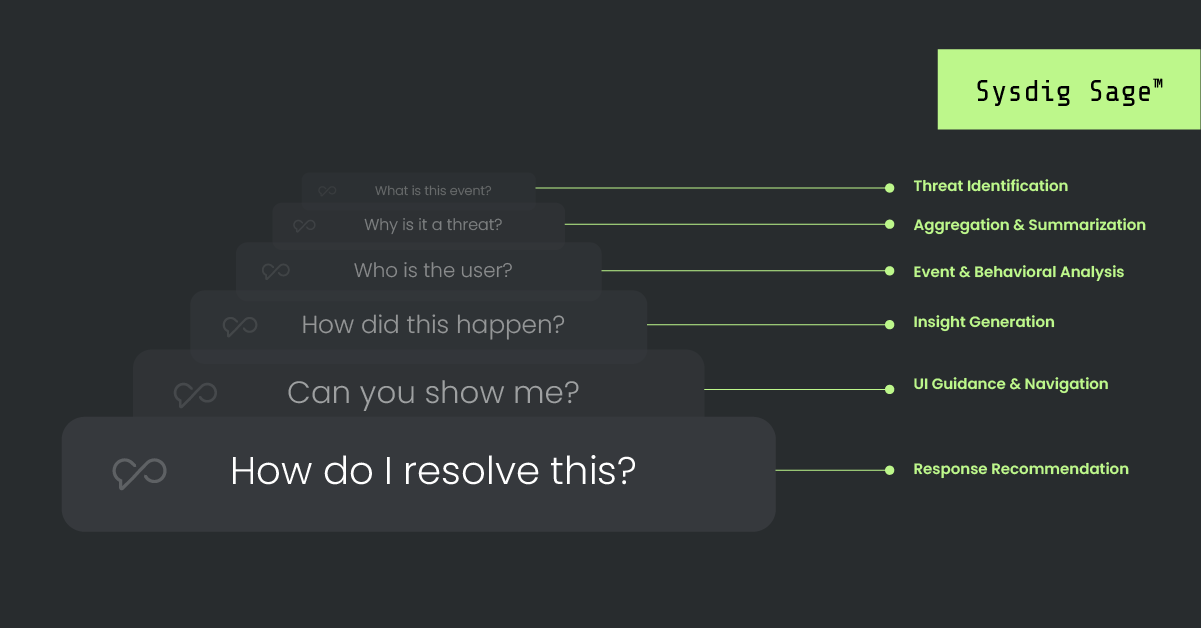What is Agentic AI?
Agentic AI is a type of artificial intelligence (AI) that can act independently to achieve specified goals, making decisions, taking action, and even learning, all without requiring human direction. Unlike traditional AI models that rely on human prompts or rules to generate responses, an agentic AI system operates with agency. It analyzes available data, senses changes, and reasons about next steps.
What you'll learn
- What agentic AI is
- Example use cases for agentic AI
- How agentic AI will impact cloud security
What is agentic AI and how is it being used?
Agentic AI goes beyond simply processing information or generating content. Unlike traditional AI systems that respond only to direct commands, agentic AI has a degree of autonomy in how it accomplishes tasks.
Key characteristics
- Acts autonomously: Initiates and executes tasks independently, without constant human oversight.
- Reasons and make decisions: Analyzes situations, formulates strategies, and makes choices based on an understanding of goals and context.
- Adapts and learns: Learns from interactions, feedback, and changing environments, adjusting behavior and improving over time.
- Is goal-oriented: Achieves specific objectives, breaks down complex problems into smaller steps, and works towards solutions.
- Interacts with its environment: Perceives data from various sources like sensors, databases, and user input, and takes actions within that environment.
Agentic AI follows a cycle, for example:
1. Perception: Gathering data from the environment
2. Reasoning: Processing the data to understand the situation and potential actions
3. Action: Deciding and executing a course of action
4. Learning: Evaluating the outcome and updating knowledge for future decisions
Agentic AI use cases
Agentic AI is being used for numerous applications, and the market has envisioned a wide range of potential use cases. Examples of agentic AI usage across various industries include:
- Autonomous vehicles: Perceiving surroundings, making driving decisions, and learning from experience
- Smart assistants: Managing schedules, controlling smart homes, and performing tasks based on user preferences
- Customer service: Understanding complex queries, accessing information, and taking actions like processing refunds
- Code writing: Autonomously planning writing, testing, and debugging of software
- Supply chain management: Optimizing inventory, predicting demand, and adjusting delivery routes autonomously
- Healthcare: Assisting with diagnostics, treatment recommendations, and patient care management
- Financial trading: Analyzing market data and executing trades autonomously
- Cybersecurity systems: Detecting threats, analyzing network activity, and automatically responding to breaches

Sysdig SageTM: A groundbreaking AI security analyst
How is agentic AI different from generative AI?
While generative AI excels at creating new content (text, images, etc.) based on prompts, agentic AI focuses on making decisions and taking actions to achieve goals. Agentic AI uses reasoning and planning, whereas generative AI primarily focuses on pattern recognition for content creation.
Why agentic AI matters for the future of cloud security
Agentic AI represents a significant step towards more intelligent and independent AI systems with the potential to automate complex tasks, improve efficiency, and drive innovation. Many cloud security programs already rely on automation via scripts, SOAR platforms, and policy engines. But these systems operate within predefined logic. They execute fixed playbooks or workflows, often failing when faced with novel threats or dynamic cloud infrastructure changes.
Agentic AI, on the other hand, offers adaptive, goal-oriented automation with the potential to:
- Detect and respond to threats in real time, adjusting tactics based on situational awareness
- Enforce cloud security policies as environments shift without manual intervention
- Triage incidents and recommend or take actions aligned with the organization's risk tolerance
Agentic AI represents a pivotal evolution: AI that doesn’t just surface alerts or recommend actions, but acts. For CISOs, this translates into faster time to containment, reduced attack dwell time, and higher operational resilience. For security architects, it means building programs that can scale in complexity without requiring proportional headcount.
Use cases emerging in cloud security
Agentic AI is no longer just a concept. Cybersecurity vendors are rapidly developing solutions to leverage this technology, such as:
- Autonomous threat response: Detect lateral movement or credential abuse and automatically isolate assets, block malicious traffic, or kill sessions in real time.
- Continuous policy enforcement: Monitor cloud configurations and instantly remediate drift or risk without human review.
- Triage and alert reduction: Sort through thousands of security signals to elevate the highest-risk issues, and take first response actions on low-regret items.
- Adaptive defense: Learn from past incidents and proactively shift controls to defend against emerging attack techniques.
These capabilities are key to the vision of an autonomous security operations center (SOC), leveraging AI to improve efficiency and accelerate incident response.
Strategic value for cloud operations and security
As this space matures, CISOs and architects should be proactive in shaping how agentic AI integrates into their cloud security programs. By reducing reliance on human response times, agentic AI will be a direct lever for managing risk.
Instead of building around fixed rules and static infrastructure, cloud security teams can architect security systems that are responsive, scalable, and more intelligent by default. Agentic AI will help teams enforce policies consistently and contain cloud threats before they escalate with the added benefit of minimizing operational disruptions during an attack.
It will also help to bridge gaps in talent and coverage. Where skilled security professionals are in short supply, agentic AI can offload routine decision-making, allowing human experts to focus on strategy and higher-order problems.
Final thoughts
Agentic AI isn't about replacing security teams, it's about enabling them to operate at cloud speed. By automating not just the execution of tasks, but the reasoning behind them, agentic AI can transform cloud security from reactive and manual to adaptive and autonomous.
For forward-looking CISOs and security architects, now is the time to consider how this groundbreaking technology can enhance resilience, reduce response time, and make cloud security programs smarter by design.
As we wrap up our agentic AI deep dive, here are some answers to frequently asked questions that you can use as a reference.
%201.svg)


